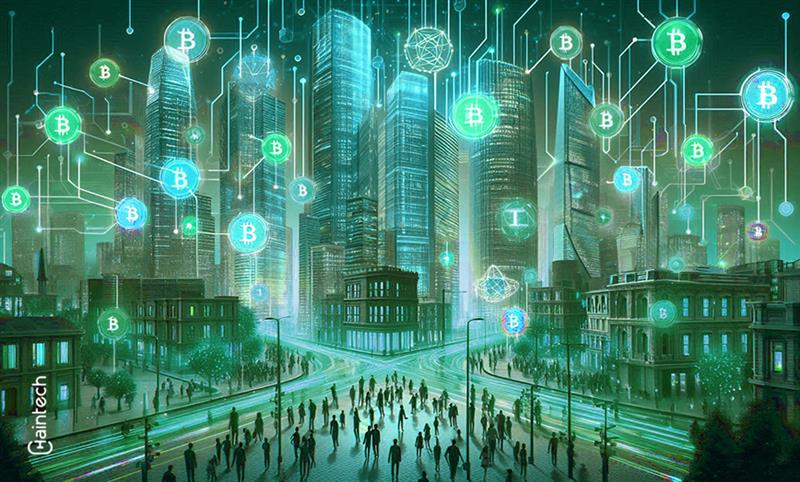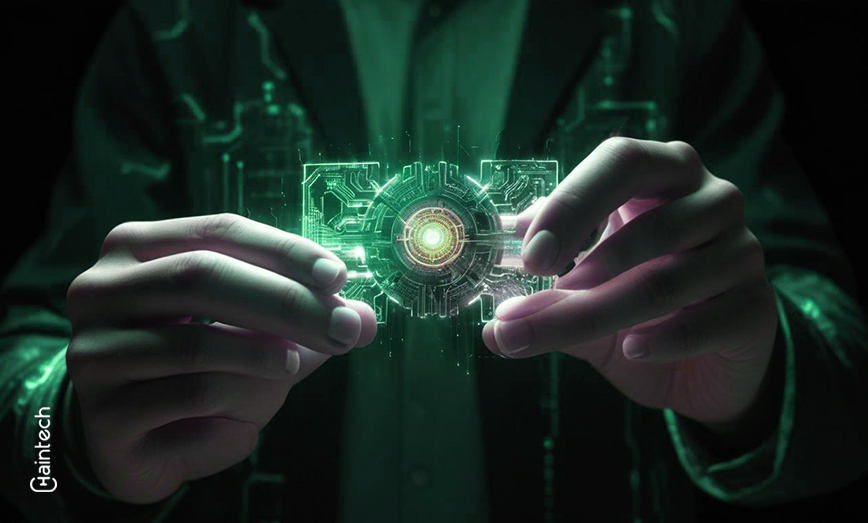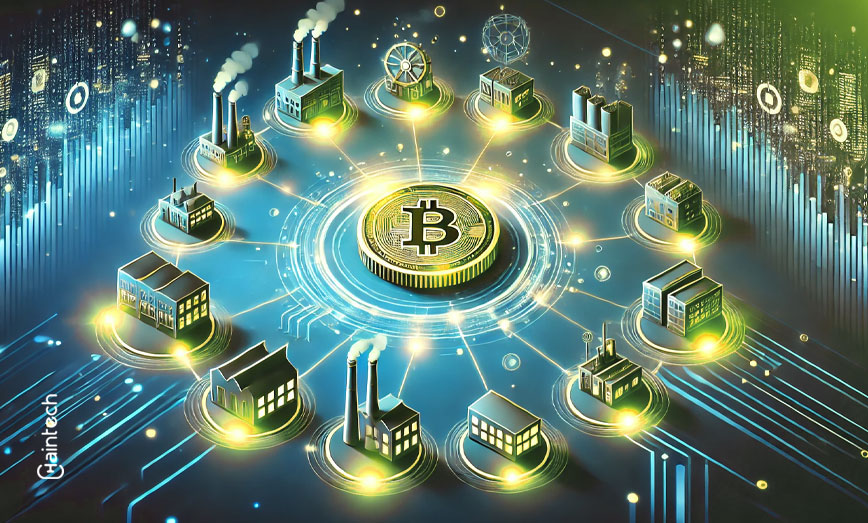Tokenization Impact: Leading Changes in 5 Key Industries

Have you ever considered that fractional ownership could allow them to acquire a part of a million-dollar building? This is what is happening in today’s tokenization. So, various industries are trending to tokenize almost all real-world asset types using blockchain technology.
Tokenization is transforming the finance and healthcare industries and how products are accessed and sold. It is changing how we interact with markets, invest, and even access medical products.
What tokenization means for finance, real estate and healthcare
- Tokenization allows investors to buy fractions of expensive assets like stocks or bonds, opening up investment opportunities for everyone.
- Tokenization lets multiple people own a piece of a property, making real estate investing as easy as buying shares in a company
Continue reading to learn how five major industries are adapting to the presence of tokenization and how it will impact the future.
1. Finance: a revolution through DeFi
The finance industry has delayed incorporating new technologies before, but that is shifting rapidly with the introduction of tokenization. Decentralized Finance, or DeFi, is the key driver behind this transformation. The logic is pretty straightforward: migrate all lending and savings schemes to properties that run on a blockchain network. There are no agents or big money lending institutions; the transactions are done in person and facilitated by digital currencies.
In conventional banking systems, many savings accounts have very minimal returns on savings. For example, the Bank of England only has an official rate of 0.1% in the UK, which isn’t all that encouraging to the average saver.
But when DeFi comes in, it completely turns around the table. Instead of subjugating their users to a slew of middlemen, cutting off the middleman allows decentralized platforms to make even more money from projects and yield the tokens.
For instance, an individual might have digital tokens like Bitcoin and want to lend them in a Defi voicing. They will be paid back with an even more attractive interest rate than traditional banks. Technology-oriented people mostly use these lending protocols but are gradually creeping into the ordinary market.
The potential here is enormous. Traditional financial models are very restrained and do not provide such returns. Still, DeFi allows everyone to invest in high-yield financial products irrespective of their country of residence. The situation is crazier than ever, as the global financial system is becoming more dominated by decentralized and tokenized assets.
2. Real estate in tokenization:
Historically, the market saw real estate as the least risky investment and, therefore, rather popular. Nonetheless, there are some concerns. High costs, long holding periods, and low liquidity make it impossible for many people to invest. Tokenization is changing that by allowing people to invest in real estate without buying an entire property.
Through tokenization, land can now be presented in smaller digital tokens. Fractional property sales are made possible; hence, more people can invest in lesser amounts. An investor doesn’t have to take years to save to acquire a property; instead, he can acquire some tokens and be part of a building.
Below is a summary table that indicates the benefits of tokenization experiences in comparison with the existing conventional real estate investment methods:
| Traditional Real Estate | Tokenized Real Estate |
| Large upfront costs | Fractional ownership |
| Low liquidity | Easy to trade tokens |
| Complex legal processes | Simplified transactions |
| Limited to local markets | Accessible globally |
Apart from that, tokenization makes real estate even more attractive by addressing the issue of liquidity. If you were to sell a property normally, it might take several months or even years to achieve that.
In simple terms, token sales can be conducted quickly by offering tokens on a blockchain platform. Real estate investors have been waiting for this kind of development to make quicker exits and recover their investments as soon as possible.
3. Healthcare:
The healthcare sector is one of the most important sectors in the world and does not stand in isolation from the advantages of tokenization. One of the major problems within the scope of healthcare is related to the safety of drugs and their supply chain. Every year, counterfeit drugs cause the industry billions of dollars in losses and pose certain risks to patients’ lives.
This is where tokenization comes in. By tokenizing the medicines, every box of medicine can be traced from the manufacturer down to the patient. This also tries to ensure that the medicines are real and have not been altered.
Let’s say, for example, a pharmaceutical company creates antibiotics. It then assigns a digital token to every box of antibiotics,, which is placed on the blockchain and validated throughout the supply chain.
As a box leaves the factory and progresses down the supply chain, say to the pharmacy, this token will contain a certificate of authenticity. There will be no counterfeits, no scheming, just safe delivery.
The benefits of tokenization in the medical field include:
- Fighting against the counterfeiting of pharmaceutical goods
- Providing transparency throughout the entire supply chain
- Decreases the likelihood of fake medicines
- Improves patient safety by tracking medications
This transparency in healthcare is important when it comes to a high level of conviction about medicine. With tokenization in place, deemed safe medicine, pharmaceutical organizations can give patients real medicine safely. At the same time, it helps to optimize supply chain operations, reducing expenses and risks.
Did you know?
Tokenization provides the means for tracking goods through the supply chain, facilitating the safe crossing of some border areas.
4. Supply chain: enhancing efficiency in global trade
Tokenization is also creating waves within global supply chains. Cross-border trade entails the movement of goods and involves many players, the most common of which are manufacturers, suppliers, and distributors. These operations are very complex, and it is hard to manage and track such transactions, which are prone to erroneous happenings or fraud.
Encoding each product’s life cycle allows companies to keep a history of its life cycle. This will help promote accountability and security in the supply chain. The token on a product can help ascertain the product’s supply chain process.
This means businesses will experience enhanced efficiency, less efficient tracking, and few to no disputes. For consumers, this means that when they buy products, they know that the manufacturer they are dealing with is reputable, apart from the brand’s credibility.
5. Media and entertainment: a brand new approach to monetizing content
The media and entertainment sector is also experiencing a wave of Tokenization, which utilizes the innovation of artists’ and creators’ work. Through tokenization, they do not need to depend on sites such as YouTube or Spotify to reach potential customers. They can simply make content and sell it to their audience.
Consider, for example, a musician. Instead of relying on a streaming service, they can tokenize their album and sell it as a limited edition digital token. Fans who buy the tokens get exclusive access to content, and the artist makes money directly without a middleman.
Why tokenization works for creators:
- Direct sales to fans
- No need for intermediaries
- New ways to monetise content through exclusive tokens
- Fans feel more connected to the creator with unique digital ownership
This model gives creators more control and allows fans to own unique pieces of content. It’s a win-win situation that’s changing how media and entertainment operate.
Understanding industries: why perhaps tokenization is going to last forever
The move toward tokenized systems in the future is unlikely to stop being just another fashionable refrain. It is a viable cost reduction and revenue enhancement strategy embraced across various sectors. From DeFi to safe health services, benefits cited in tokenization include efficiency, security and market access.
The visions of such mighty growth are not merely fantasies, as more and more industries are set to warm up to this technology. Overall, consign yourself to fully knowing that tokenization is here with us, whether you are an investor, a businessperson, or a technology enthusiast.
Focus on how the phenomenon of tokenization explains how the ecosystem is being built and how it will develop further. If you want to participate in this brave new world, do it better and more quickly.
FAQs
- What is tokenization?
Tokenization is the act of encoding an asset of real-life significance into a digital token that can be exchanged or monitored on the DLT system.
- What is the benefit of tokenization in real estate investment?
Using tokenization also enables participants to purchase a share of the asset instead of the whole property, thus enhancing liquidity and making real estate investment more attractive.
- What does DeFi stand for in finance?
This is an offshoot of computerized banking, whereby people use Defi products to obtain savings, loans, and other financial services without one central bank.
- In what manner does tokenization add value to the pharmaceutical supply chain?
With the ability to track every point in the supply chain, the risks of counterfeit drugs related to drug safety are minimized. These factors also benefit patients.
- Can artists and creators benefit from tokenization?
Yes, tokenization allows creators to sell their content directly to fans, cutting out intermediaries and providing new revenue streams through exclusive digital ownership.









